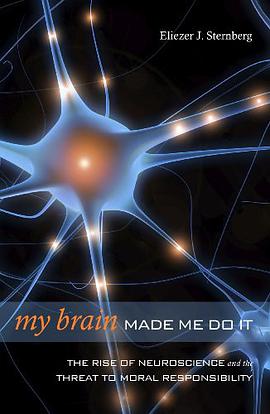

具体描述
As scientists continue to explore how the brain works, using ever more sophisticated technology, it seems likely that new findings will radically alter the traditional understanding of human nature. One aspect of human nature that is already being questioned by recent developments in neuroscience is free will. Do our decisions arise from purely mechanistic processes? Is our feeling of self-control merely an illusion created by our brains? If so, what will become of free will and moral responsibility?
These thorny questions and many more are examined with great clarity and insight in this engaging exploration of neuroscience's potential impact on moral responsibility. Author Eliezer J. Sternberg delves into a host of fascinating topics, including:
-the parts of the brain that scientists believe are involved in the exercise of will
-what Parkinson's, Tourette's, and schizophrenia reveal about our ability to control our actions
-whether a future of criminal behavior is determined by brain chemistry
-how self-reflective consciousness may have evolved from a largely deterministic brain
Using illustrative examples from philosophy, mythology, history, and criminology, and with thorough discussions of actual scientific experiments, Eliezer J. Sternberg explores the threat of neuroscience to moral responsibility as he attempts to answer the question: Are we truly in control of our actions?
作者简介
目录信息
读后感
评分
评分
评分
评分
用户评价
相关图书
本站所有内容均为互联网搜索引擎提供的公开搜索信息,本站不存储任何数据与内容,任何内容与数据均与本站无关,如有需要请联系相关搜索引擎包括但不限于百度,google,bing,sogou 等
© 2026 book.wenda123.org All Rights Reserved. 图书目录大全 版权所有




















